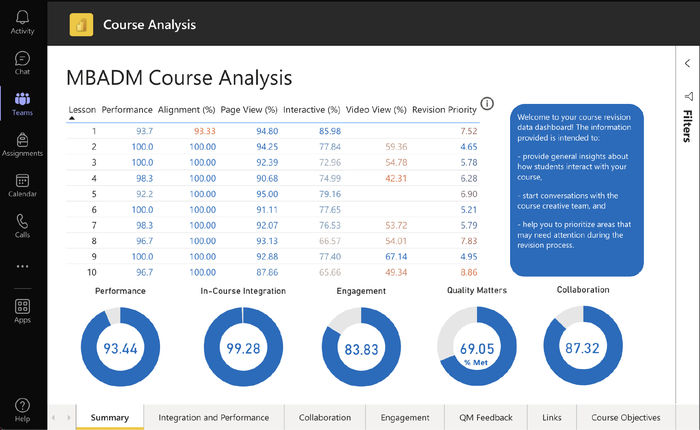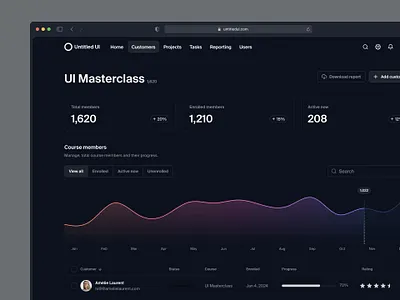Leveraging data analytics to improve course platform performance involves systematically collecting and analyzing learner data to identify patterns in engagement, performance, and content effectiveness, which then informs targeted improvements in course design, delivery, and personalized learning experiences.
Key strategies include:
-
Tracking Student Engagement and Performance: Using analytics tools integrated into e-learning platforms to monitor metrics such as time spent on tasks, quiz scores, assignment attempts, and participation in interactive content. This helps identify which students struggle or excel, enabling timely interventions and support.
-
Personalizing Learning Pathways: Data analytics allows platforms to create individualized learning paths based on student preferences, performance levels, and learning behaviors, increasing engagement and knowledge retention.
-
Improving Curriculum and Content Design: By analyzing aggregated data on student outcomes and engagement, educators can pinpoint which course elements are effective and which need modification. For example, if many students struggle with a particular assignment, the content can be revised to improve comprehension.
-
Real-Time Performance Tracking and Feedback: Advanced analytics tools provide immediate insights into learner progress, allowing instructors to adjust teaching strategies dynamically and offer personalized feedback, fostering continuous improvement.
-
Predictive Analytics and AI Integration: Emerging trends include using AI and machine learning to predict learner needs and skill gaps, enabling proactive course adjustments and personalized recommendations.
-
Utilizing Self-Service Analytics Tools: User-friendly analytics platforms empower educators and administrators to independently analyze data without deep technical expertise, promoting a culture of data-driven decision-making.
-
Supporting Institutional Goals: Analytics can help identify at-risk students early, optimize resource allocation, and measure the overall effectiveness of training programs, contributing to improved student success and institutional performance.
Popular platforms and tools that support these analytics capabilities include SoftChalk for authoring with built-in analytics, Google Cloud’s BigQuery and Looker for data processing and visualization, and specialized training platforms like Data Coach and Coursera that offer analytics-focused learning paths.
In summary, leveraging data analytics on course platforms enhances educational outcomes by enabling evidence-based decisions, personalized learning, and continuous course optimization through detailed insights into learner behavior and performance.





